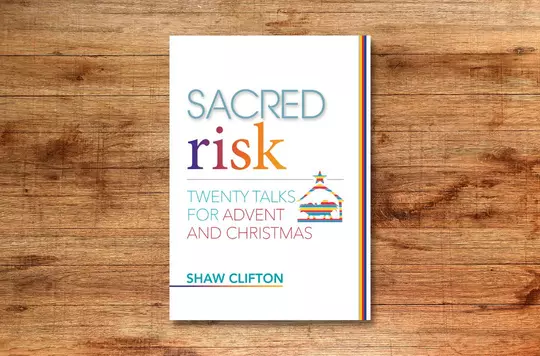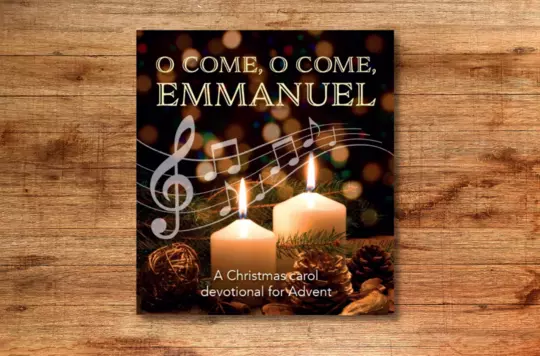21 November 2022
Psalm 145: every day I will praise you
Major Paula Knight
Major Paula Knight reminds us that praise takes us deeper into our relationship with our Creator.
Key text
Psalm 145 is called ‘a praise of David’, which has been written in the form of an acrostic of the Hebrew alphabet, which King David uses to pour out his praise and admiration to God. There is something rather delightful about a king proclaiming: ‘I will exalt you, my God the King’ (v1).
Pause and reflect
- What do you want to praise God for?
- Make a list, and then use it to write your own psalm of praise.
In recent months we have had cause to reflect on the life of Queen Elizabeth II who, like King David, made it very clear that her allegiance was to God. Having planned her own funeral she rather poignantly chose a final hymn that included the lines: ‘Changed from glory into glory,/ Till in Heaven we take our place,/ Till we cast our crowns before thee,/ Lost in wonder, love and praise’ (SASB 262).
To cast one’s crown before God is to acknowledge that, even if you are the king or the queen, there is one who is greater than you. If royalty is able to humble themselves before God, then how much more can we bow before the living God in humble obedience and praise to him? We are, of course, all equal in the eyes of God.
In this psalm, King David outlines his reasons to praise God and none of them depends on his circumstances: he praises God because God alone is worthy of praise; he praises God because of his grace and compassion; he praises God because it is through God alone that salvation can be found.
It is right and proper to praise God when we receive a wonderful answer to prayer or when we feel his blessing resting upon us. However, King David’s psalm takes us considerably deeper into our relationship with our Creator. In verse 2, he says: ‘Every day I will praise you and extol your name for ever and ever.’ This is a statement of intent because he is claiming to praise God regardless of what happens to him each day.
In her 2002 Christmas broadcast, Queen Elizabeth II said: ‘Each day is a new beginning. I know that the only way to live my life is to try to do what is right, to take the long view, to give of my best in all that the day brings and to put my trust in God.’
Each day, it would benefit us to drink deep from the well of God’s love and grace – for what else, or on whom else, might we rely?
Pause and reflect
- Is it possible to praise God in all situations?
The early Christian martyrs praised God as they faced their deaths. On a visit to the catacombs in Rome many years ago, I was greatly impacted by the statue of St Cecilia. It shows the position of her body at her death in what is traditionally thought to be around AD 177.
Three fingers are raised on her right hand to represent the Trinity, with two folded fingers representing the humanity and divinity of Christ. On her left hand there is one finger raised to represent the one true God. It would appear that as St Cecilia lay dying, her hands were quietly proclaiming where her allegiance lay.
In recent months Ukrainian Christians have continued to meet together to sing songs of praise and worship while their country is being devastated by war. We might wonder how such praising of God is possible in the face of persecution, death and suffering. Paula Gooder helps us understand this incredible phenomenon when she says: ‘Belief in the Resurrection is an act of defiance in a cynical world.’
Our praise reminds us – and the world around us – that there is hope, that death is not the end, that our God could not be contained on the cross and that it is possible to overcome evil with good.
My life circumstances are constantly changing but this one thing stays the same – I am a child of God. He loves me, and I have been set free from the power of sin and evil through the death and resurrection of Jesus Christ.
So, when King David says ‘I will praise you every day’, he is declaring that his allegiance is to God, the King above all kings, the one who can be trusted above all others, the one who brings peace.
Pause and reflect
- Who is your allegiance to?
- Use the words of King David to guide you in your own praise of God.
Bible study by

Major Paula Knight
Corps Officer, Wood Green
Discover more

Psalm 143: 'God’s unfailing love transforms us'
Captain Rob Westwood-Payne describes the extent of God’s love.

A Christmas feast – in bite-sized chunks
Major Mal Davies reviews Sacred Risk by General Shaw Clifton (Retired).

O Come, O Come Emmanuel
A Christmas carol Advent devotional, with lyrics from carols old and new.

Intercultural Mission Conference 2022: 'Walls came down'
More than 100 Salvationists from across the territory gathered for the annual Intercultural Mission Conference.
